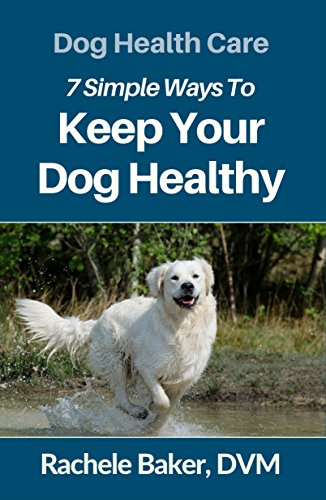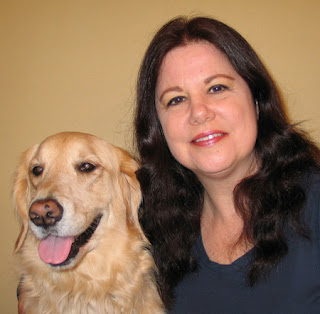7 Simple Ways to Keep your Dog Healthy
About the Book
 The must-have book for dog owners written by an experienced veterinarian and dog lover.
The must-have book for dog owners written by an experienced veterinarian and dog lover.
You may be able to help your dog avoid developing medical problems like skin infections, ear infections, and more, by following the simple preventative care recommendations that Dr. Baker discusses in this book. Preventative care is much less expensive than paying for veterinarian exams, diagnostics, and treatments for your dog when your dog develops medical problems.
Dr. Baker answers some of the most asked questions from dog owners. Is it normal for dogs to have bad breath? What vaccines does your dog really need? Does it really matter what food you feed your dog? In this book, Dr. Rachele Baker shares the knowledge that she has acquired during more than sixteen years as a practicing veterinarian. Even people who have had dogs for years will be sure to learn something new in this book!
Dr. Baker received her B.S. from the University of California Davis in 1997 and her Doctor of Veterinary Medicine degree from Michigan State University College of Veterinary Medicine in 2001. Dr. Baker wrote this book to provide dog lovers with the information they need to keep their dogs healthy in a simple, brief, yet comprehensive, manner.
Praise for this book
“Loved it from start to finish. Informative, creative, and intelligent.” – Denise, Goodreads.
“Clear, comprehensive, and easy-to-read. Refreshingly well-written and covers everything one might need to know as a dog owner.” – Bella, Amazon
About the Author
Dr. Rachele Baker is a veterinarian, an author, an award-winning blogger at Rachele Baker, Veterinarian and Author, and, of course, a pet lover.
She lives in the beautiful state of California. Rachele likes to try new restaurants, go to local festivals, hike the many beautiful trails around her home, and explore California wine regions.
Rachele has been working as a veterinarian in California caring for dogs and cats for seventeen years. She received her B.S. from the University of California Davis in 1997 and her Doctor of Veterinary Medicine degree from Michigan State University College of Veterinary Medicine in 2001.
Why MyDogLikes 7 Simple Ways to Keep Your Dog Healthy
Chapter 1: The Best Nutrition For Dogs and Puppies
The six basic nutrient categories
A good quality diet for your dog will contain all the essential nutrients in the proper proportions. The six basic nutrient categories are water, carbohydrates, protein (essential amino acids), fat (essential fatty acids), minerals, and vitamins.
Water
You may be surprised to learn that water is considered the most important nutrient. Water is vital to life. Water is one of the largest constituents of an animal’s body and can vary from forty percent to more than eighty percent of the total.
Water provides shape to the body. It acts as a solvent in which substances are dissolved and then transported through the body. Water is necessary for the digestion of proteins, carbohydrates, and fats. Water in bodily fluids helps lubricate the joints and eyes and keeps the airways moist.
Water helps regulate body temperature as it is evaporated from the skin or from the respiratory tract during breathing. That is why you will see your dog pant when he or she gets hot. Panting helps to cool your dog down. Panting is the primary way that dogs get rid of excess body heat. When your dog pants, water and heat are evaporated from your dog’s lungs, tongue, and mouth.
It is very important, therefore, to make sure that your dog always has fresh, clean water. You should clean your dog’s water bowl with dish soap every day to remove bacteria and debris before refilling it with clean water. I do not recommend leaving your dog’s water bowl outside in a place where other animals in the area can drink from it due to the potential for contamination with bacteria and diseases from other animals.
Want to read more? Click the links below to purchase!
~ Amazon ~
~ Barnes & Noble ~
~ iTunes ~ Kobo ~







These kinds of books are so important for pet owners. The old cliche is true, an ounce of prevention is worth a pound of cure, so it’s important for every owner to take as many precautions as possible.